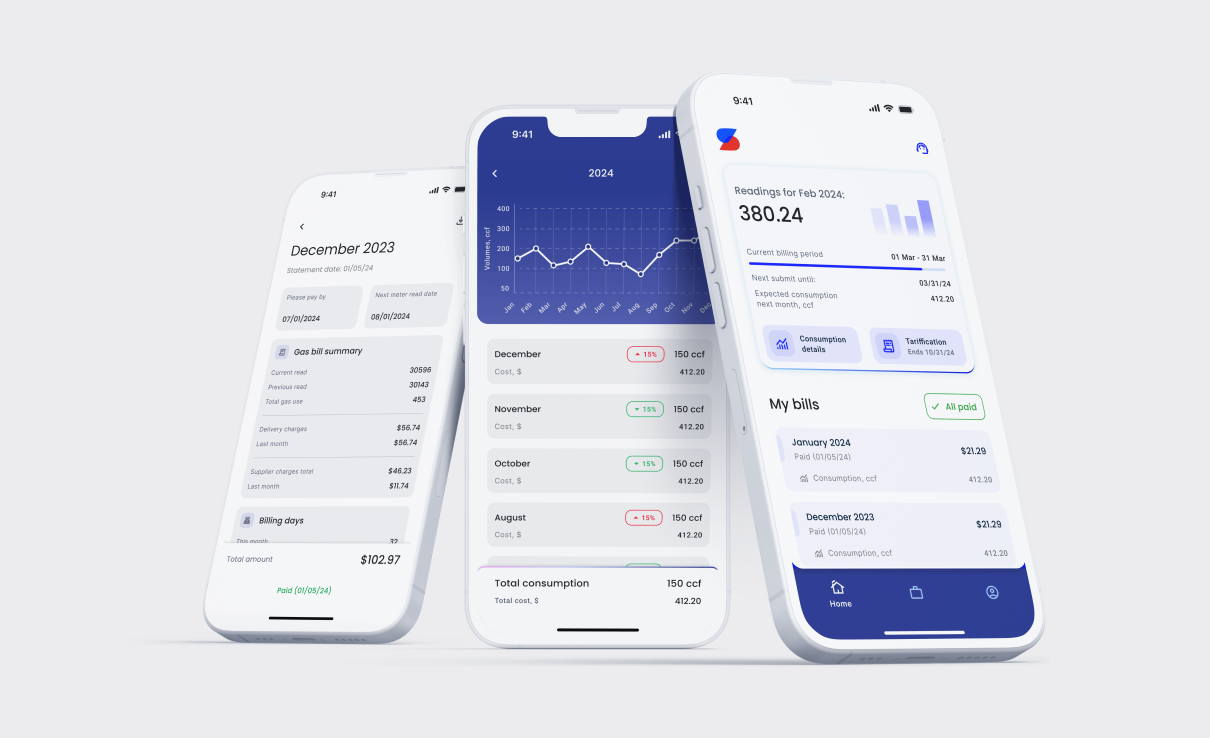We were approached by a client who needed to build an application for booking flight tickets and hotels different from competitive ones. Thus, the client decided to go beyond the standard functionality for this solution – in addition to booking capabilities, it should also offer users possible leisure options in a new location. The conceived idea for this additional functionality was intended to be implemented through the introduction of artificial intelligence.
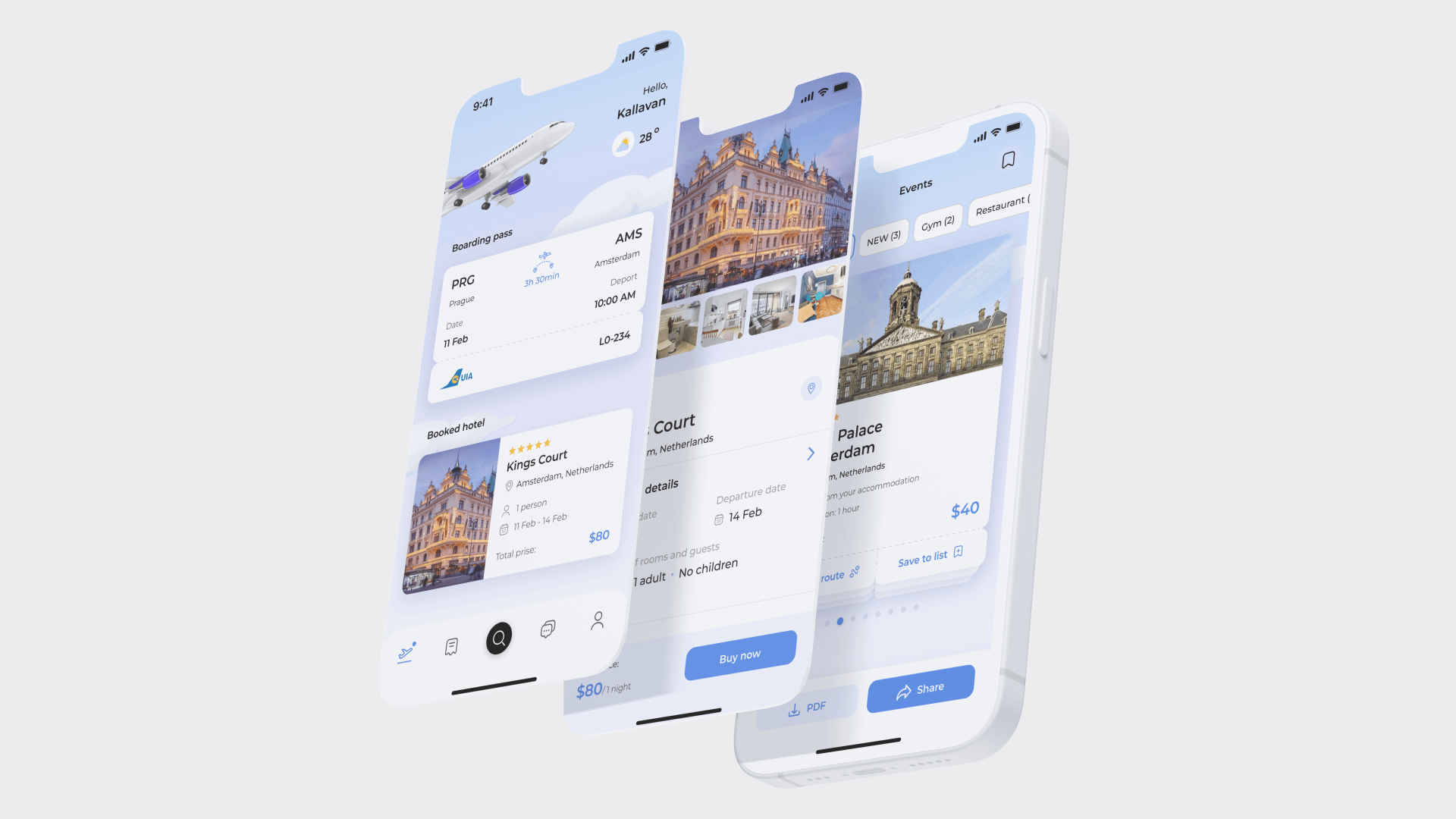
CLIENT
The client's application scans information from the websites of all leading airlines and tour operators so that users can compare the prices of their offers in one place. In the list received after entering a request, users can find a suitable offer quickly and book it on the provider’s website (the redirection is carried out automatically from the client’s app). This functionality is implemented using traditional methods, without AI.
But, after booking rooms and tickets, the user gets the opportunity to create a file with detailed information about places to go and what to do on the travel date – this is where AI comes into play. Specifically, such a file is generated using AI, which compiles a detailed guide based on a client survey.
The project is under NDA, so the name Voyage has been changed and has nothing to do with the original name of the application.
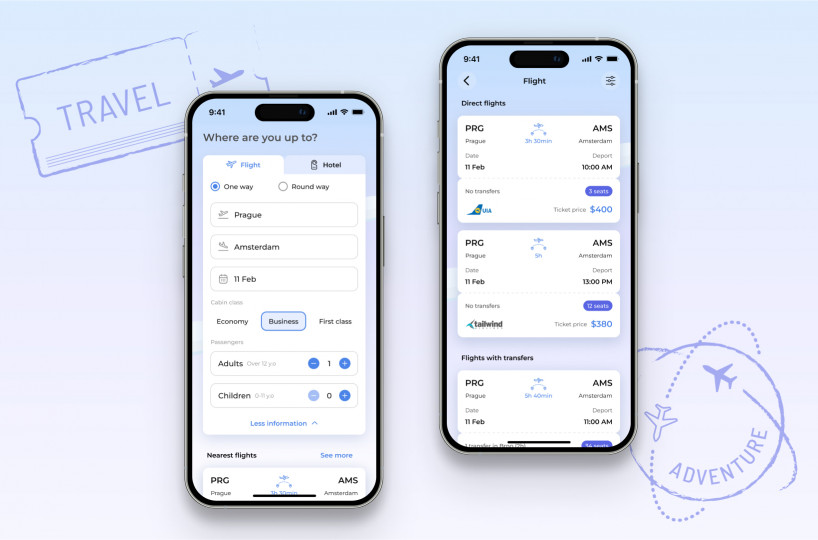
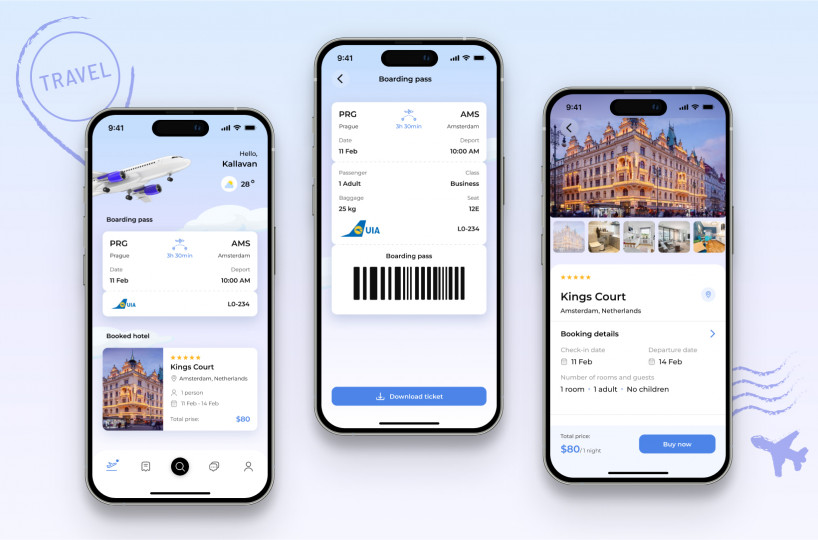
GOALS AND OBJECTIVES
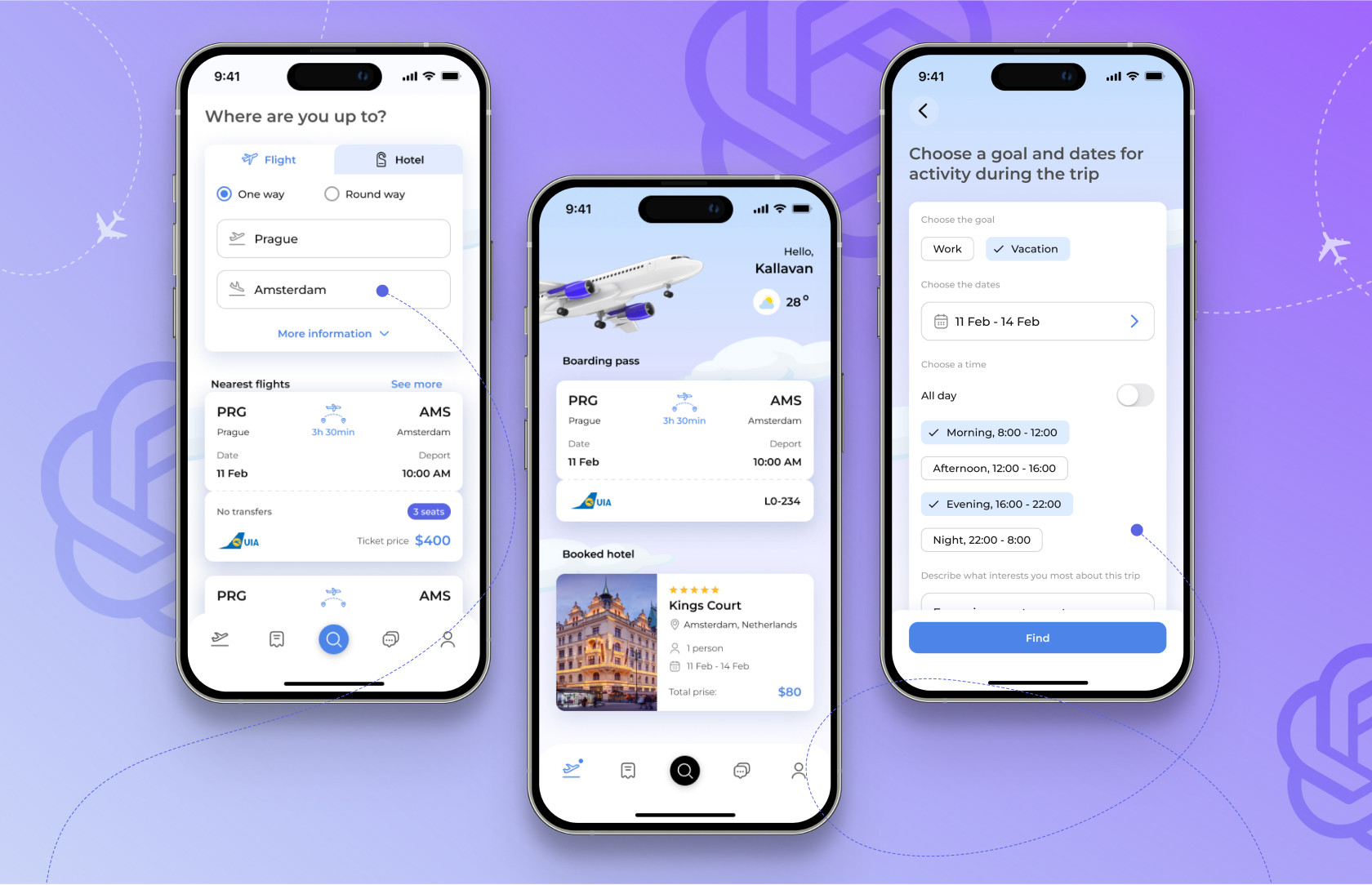
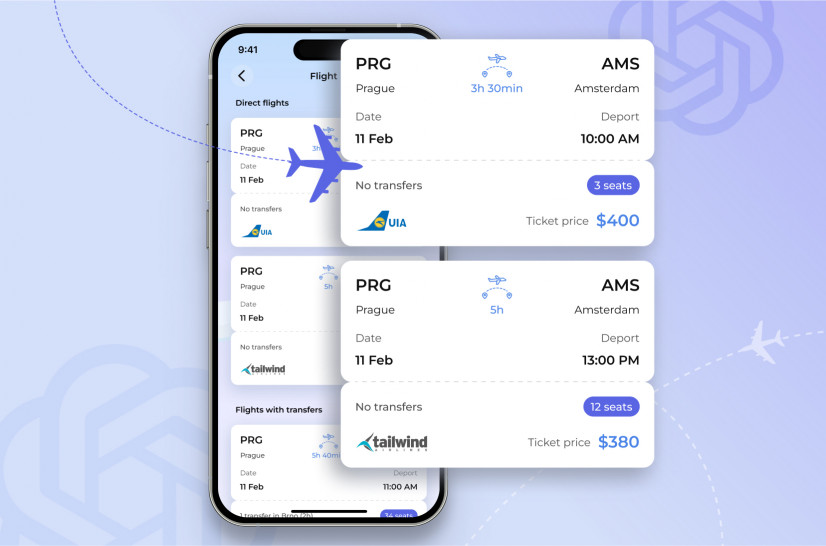
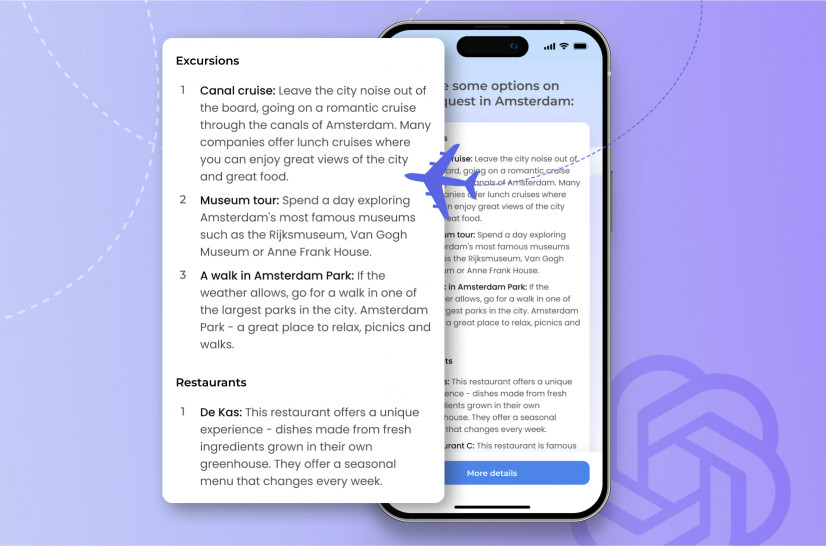
SOLUTION
The client application should become a full-fledged assistant for users who want to organize their trip – it helps to book plane tickets and hotel rooms (like an ordinary app for these goals), as well as offer possible leisure activities (using AI) – therefore, users can generate guidelines for their entire journeys, both in app and in separate PDF files.
First, the client's application should provide its users with capabilities of booking airline tickets and hotels taking into account their unique needs and location features. After entering travel requirements, they receive a list of available tickets and hotels at the place of arrival. Here, we have simply collected current offers from leading airlines and local hotels and generated a selection from them (it can be sorted and filrtered out according to the user’s preferences).
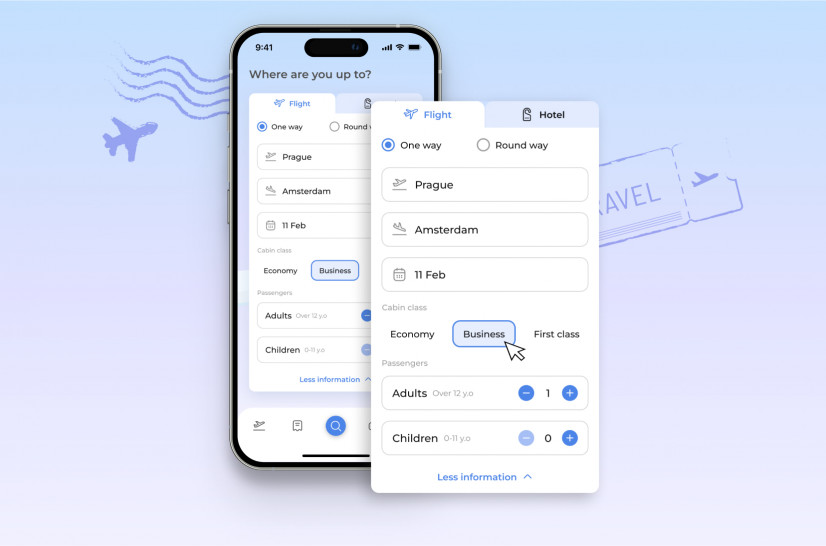
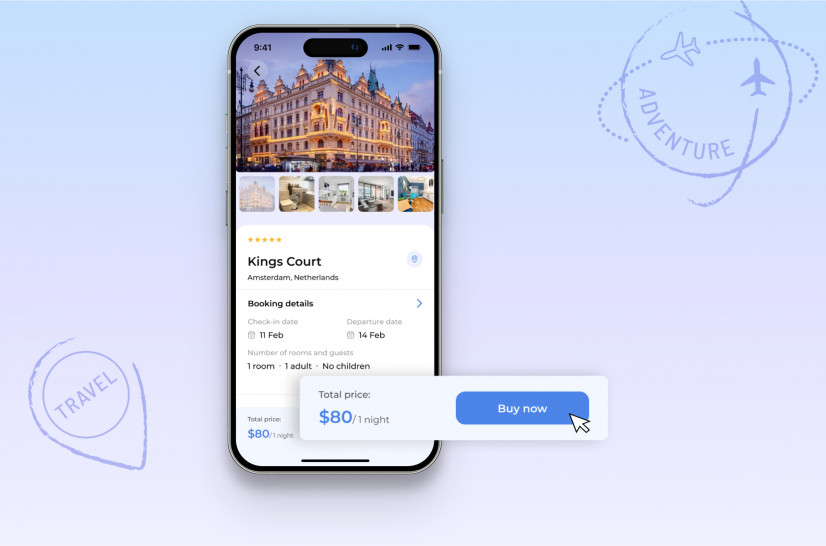
After booking tickets, the app allows users to consider available leisure options in the new location. For this, it asks them several questions they must answer to understand the context of the trip and their wishes regarding their leisure time during the trip. This functionality implies the introduction of AI-based algorithms that follow the context of users' answers after surveying them.
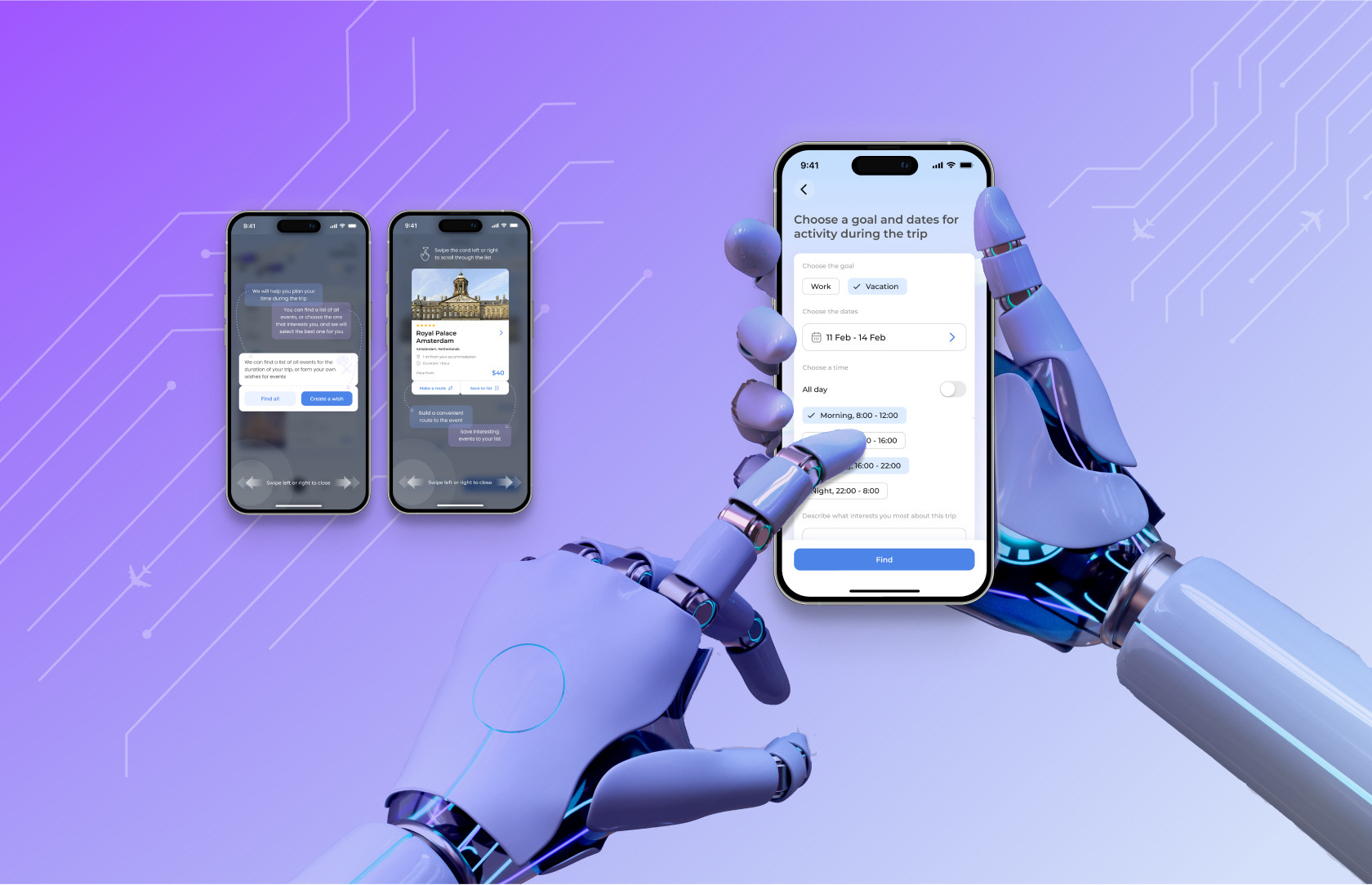
An updated app must compile a list of possible activities for users based on the information they provide: the number of tourists, type of activity (business trip or vacation, active or passive leisure, etc.), expected time of activity, date of arrival and departure, accessibility radius from their place of residence, and their individual requirements. To do this, the application uses artificial intelligence that analyzes user responses and offers them options taking into account the context of these responses. All possible offers – tickets for concerts and excursions, lists for booking places in restaurants, etc. are uploaded into the application via the API. Thus, instead of visiting standard attractions, the app users have the opportunity to discover interesting locations in a personalized, AI-generated PDF-file, without the help of local guides.
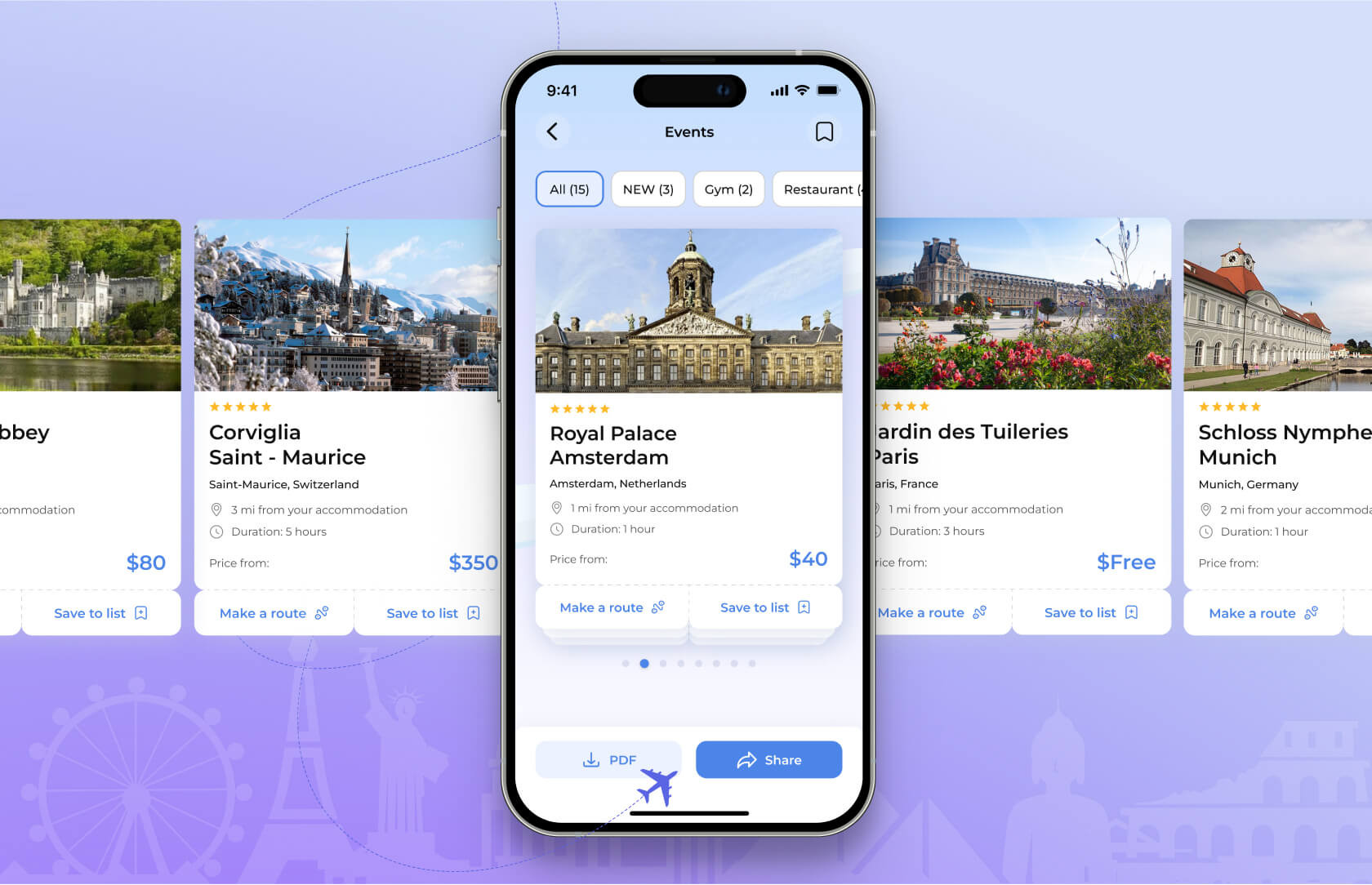
Users can view recommendations selected with AI both in the application itself and in a separate PDF document (if they need offline access). If users choose to view them in the app, they can get directions to a destination or check out points on the map selected from a suggested list of possible activities.
In this case, the flights mobile app development process meant expanding the traditional functionality and appearance of an average booking application – besides ticket and hotel booking features, we also needed to add AI-based ones to it. Thus, a few months after the first contact with the client, the software was released. As a result, the client received an app with a strong competitive advantage (thanks to the AI introduction to generate a selection of possible leisure options based on individual user preferences) bringing a stable influx of users.

